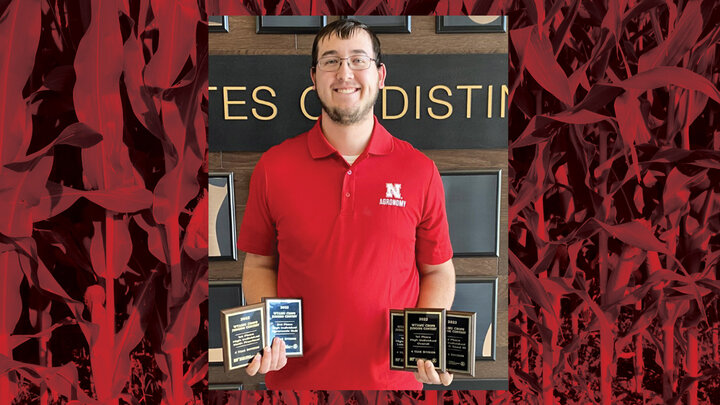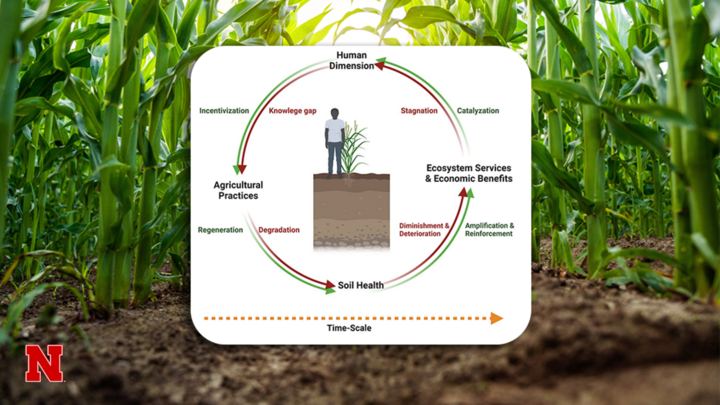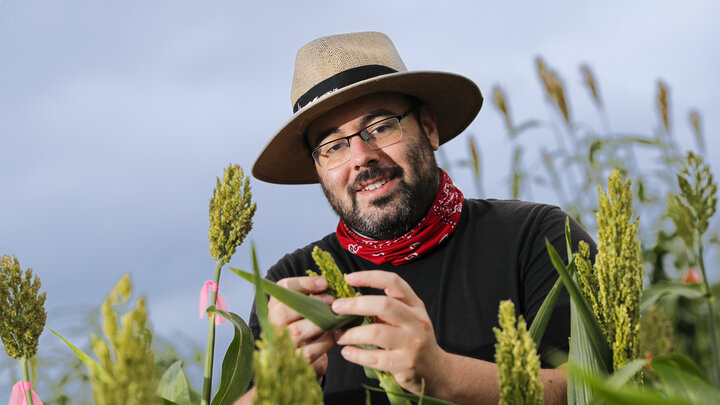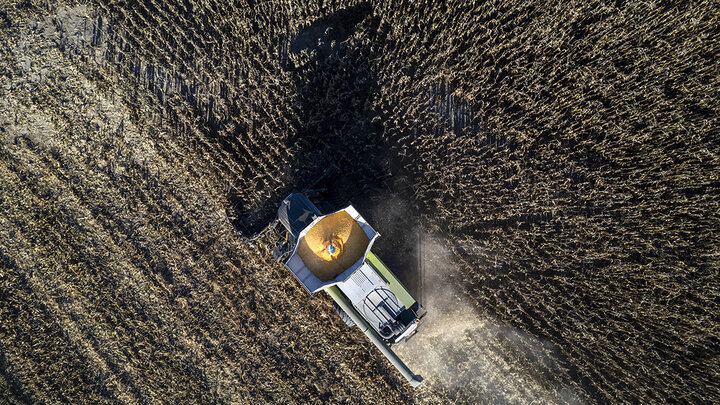The University of Nebraska–Lincoln Crops Judging Team competed in the West Texas A&M University Collegiate Crops Contest in Canyon, Texas, Feb. 19.
As a team, the Huskers placed third overall in the four-year college division. Nebraska's winning team includes senior agronomy majors Nathan Donoghue, Katie Steffen, Korbin Kudera and Sarina Janssen. Seven of the ten teams in attendance were from four-year colleges.
Kudera came home with five plaques, an individual record for Nebraska. He received best individual score at the contest, first in math, first in lab practical, third in the agronomic exam, and third in plant and seed identification.
According to Jared Stander, team coach and instructor for the crops judging course, Kudera is the only Nebraska student to have ever received best individual score at a contest. He scored 20 points higher than the individual who received second place.
“This team did a phenomenal job despite being green and for many of them, this was their first contest. Their willingness to learn and putting in the hours to study and come in and practice – with no complaints – really paid off,” said Stander.
Kudera was very excited to win these awards and to be able to represent Nebraska at this contest.
“Working on my family's farm and competing in 4-H contests like the Innovative Youth Corn Challenge and the Youth Crops Scouting Competition when I was younger prepared me for the crops judging competitions,” Kudera said. “Crops judging is a great way to put what I am learning in my classes to use."
Designed to prepare students for a future career in agronomy, the crops judging contest includes four segments. These include an agronomic exam, a math exam, a plant and seed identification exam, and a lab practical. The agronomic exam covers general agronomic knowledge of new and past political and agronomic products and innovations. The math exam covers mathematical problems related to agronomy. The lab practical includes questions on various agronomy-related disciplines such as weed science, entomology and plant pathology. The plant and seed identification exam tests knowledge of 140 crops and weeds species.
“Even though we compete individually in the contest, there is a lot of learning that takes place as a team. If a team member knows more about a certain topic, they explain it to the other team members so they can learn as well,” Kudera said.
“The team really exceeded my expectations, and I am proud of the progress they have made from last fall to now,” Stander said.
In addition to being Crops Judging Team coach, Stander is a teaching assistant for professor Don Lee, a research assistant for associate Extension educator Chris Proctor, and assists in creating lessons for the Plant and Soil Sciences eLibrary.
Stander also serves as superintendent for the FFA Agronomy Nebraska Agricultural Education Career Development Event.
The team will compete March 5 at Kansas State University in Manhattan and on March 31 at the Nebraska College of Technical Agriculture Collegiate Crops Contest in North Platte.
2022 Crops Judging Team members include Nathan Donoghue (back row, from left), Korbin Kudera, Bryce Wemhoff and Will Stalder, and Kailey Ziegler (front row, from left), Maggie Walker, Katie Steffen, Sarina Janssen and Dan Frey.
Nebraska's winning team includes senior agronomy majors Nathan Donoghue (from left), Katie Steffen, Korbin Kudera and Sarina Janssen.
For more information about Nebraska’s Crops Judging Team see https://agronomy.unl.edu/crops-judging-team.




